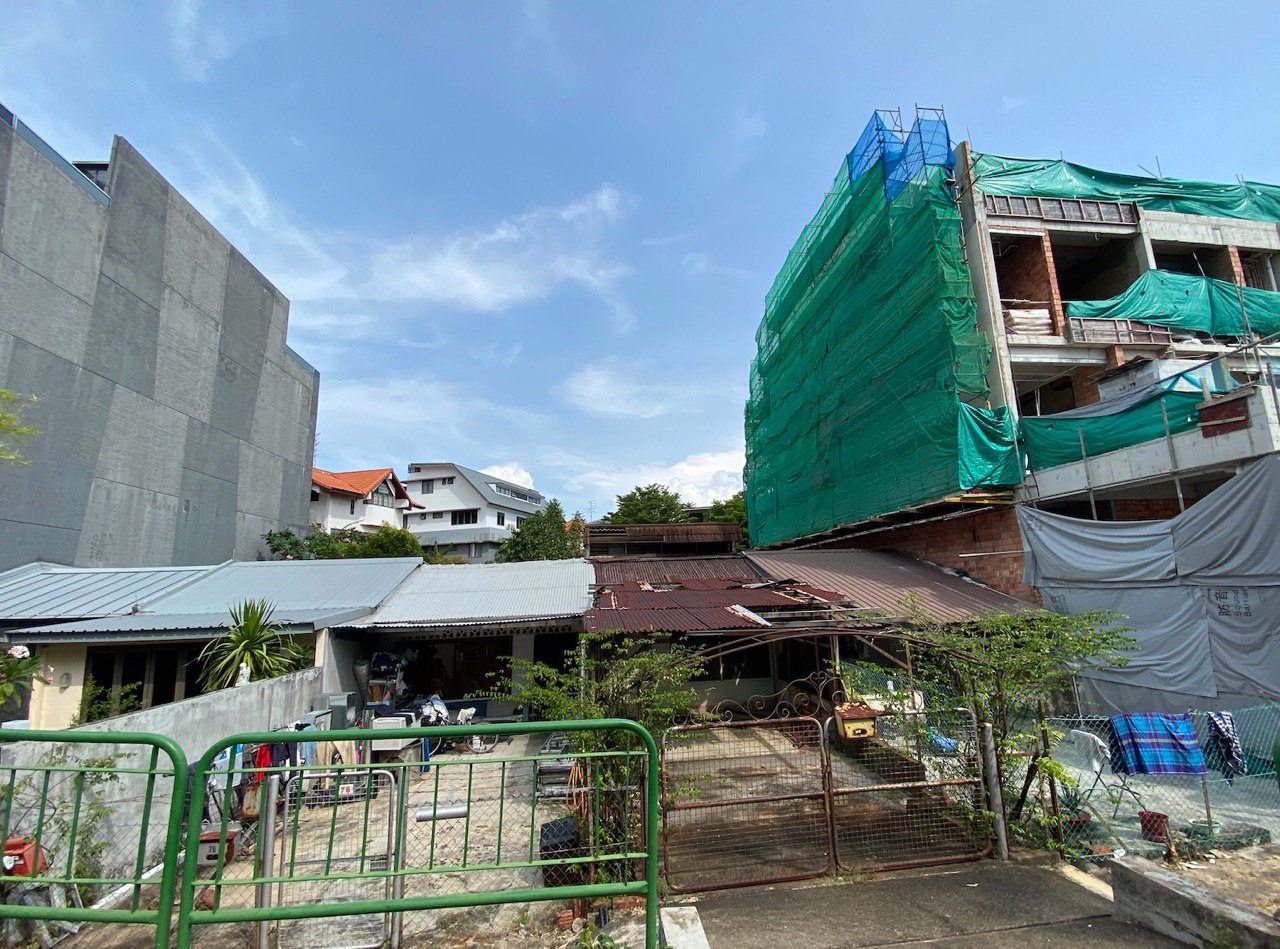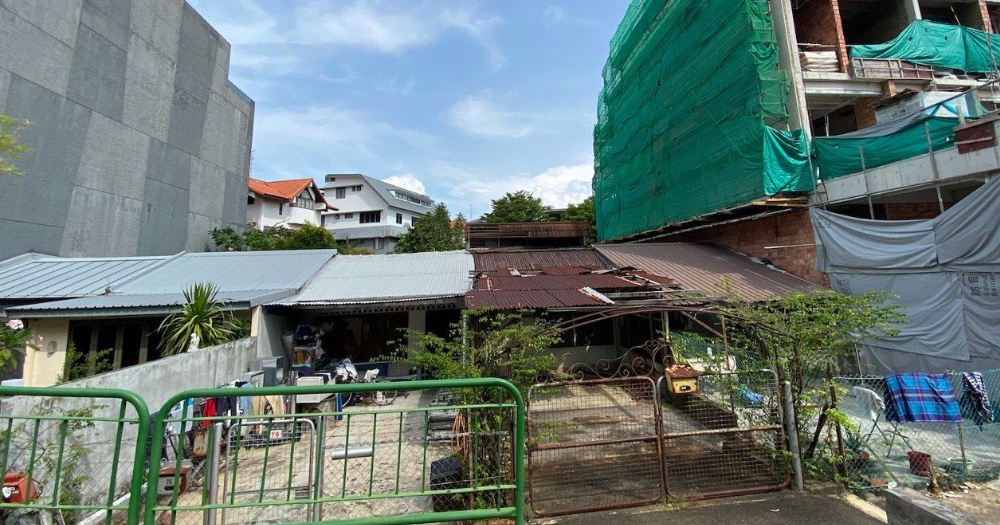PERSPECTIVE: A form of means testing that is often utilised in Singapore is by looking at Annual Value (AV) of an individual's property. But not all who live in private property are high-income earners.
The issue of asset-rich, cash-poor Singaporeans, and whether they should get financial assistance, is not a new one.
We lay out some considerations behind suggestions for means testing to be accommodate a broader range of people who may require assistance, as well as the trade-offs that may involve.
Recently, a long-standing issue was raised in Parliament once again: should asset-rich, cash-poor Singaporeans be given financial assistance?
This question, although not new, becomes a more pertinent one to ask at the present moment, due to the ongoing Covid-19 pandemic.
After all, a total of four budgets were passed this year, with a total of S$92.9 billion committed by the government to its Covid-19 response.
Financial support was given to a wide array of people through a variety of different ways.
From self-employed persons, to people who recently lost their jobs, to businesses who are struggling to pay their employees, people from all walks of life seemed to have walked away with some sort of aid or another.
However, there is a rather niche group that may not have benefitted as much from the various financial schemes available: the asset-rich, cash poor Singaporeans.
This group of Singaporeans, who mainly live in private property, often do not qualify for financial aid from the government.
How is the annual value of a property calculated?
One may ask: what does the type of property that one lives in have to do with aid received?
Well, a form of means testing that is often utilised in Singapore is through looking at the Annual Value (AV) of an individual's property.
If you live in a property with an AV that exceeds a certain amount, you will often find yourself not eligible for certain government aid programmes.
For example, if you live in a property with an AV exceeding S$21,000, you will not be eligible to apply for either the Covid-19 Support Grant (CSG), nor the Self-Employed Person Income Relief Scheme (SIRS).
You will also not receive the seemingly ever-present GST Voucher, even if you otherwise fulfil the criteria.
And how is the AV of a property calculated?
Simply put, the Inland Revenue Authority of Singapore (IRAS) defines the AV of a property as the "estimated gross annual rent of the property if it were to be rented out".
This number is determined based on estimated market rentals of similar properties, and may vary based on a number of factors, such as location.
According to Seedly, the median AV for most HDB flats fall under S$13,000 (which is the magic number to get the full S$300 from your GST voucher, by the way), while private property have a median AV of between S$22,200 and S$34,200 in 2018.
This means that if you live in a condominium or landed property, you most likely do not qualify for a number of government schemes providing financial aid.
Not everyone that lives in private property are high-income earners
But what's the problem with using the AV of a property to determine financial aid given? Surely people living in their atas condos or bungalows do not require government assistance?
Well, this line of reasoning only makes sense if we assume that every individual that lives in a property with high AV are high-income earners.
Unfortunately, this may not always be the case in reality.
Several MPs have pointed out in Parliament that there are certain groups of people who may live in private property, but may not necessarily be high-income earners.
For example, MP for Kebun Bahru SMC Henry Kwek recently said that individuals who are above the age of 50 may face career uncertainty, making them in need of government assistance.
The ongoing Covid-19 pandemic has also affected many people's livelihoods, and many who may live in private property now may actually be out of a job.
Mountbatten SMC MP Lim Biow Chuan reasoned that although those of a lower income should get more help, it does not mean that Singaporeans who live in homes above a certain annual income should be deemed "self-sufficient".
He said that individuals in certain households may need to look after sick elderly parents or look after children with special needs, which may reduce their disposable income, even if their household income may appear high.
In an interview with Mothership, Minister for Culture, Community and Youth Edwin Tong also brought up his experiences with residents who did not qualify for certain programmes and financial schemes, simply because of their type of residence.
He illustrated this problem with a photograph of a dilapidated house, right next to a modern terrace house.
 Image courtesy of Edwin Tong.
Image courtesy of Edwin Tong.
"I feel very upset for these people [living in such situations]. They are old, they inherited the property for many generations, their parents probably passed it on to them, yet they have no money to build it up.
And our policies don't reach them. And that's a failing."
Shouldn't those in need of aid sell their property?
If you're facing financial problems, why not sell your private property, and downsize to a HDB?
In a Straits Times article published in 2013, it is suggested that the government takes a pragmatic stance on the issue: cash-strapped seniors with high-value assets should monetise their property, by downsizing, sub-letting rooms, or taking up a reverse mortgage, rather than receiving handouts from the governments.
This may seem like an easy solution for those who live in private property, but may not always be optimal or realistic.
While it may be reasonable to expect those who are in need of long-term aid to downsize their property, it may be difficult to persuade those who are merely facing short-term difficulties to do so.
For example, if a couple living in a bungalow lost their jobs due to Covid-19, should they be expected to immediately sell their property, in order to get government aid?
According to Lim, the government should look into loss of income as a criteria for providing financial aid, and that individuals should not have to sell their homes before they are eligible to get short-term aid.
In addition, retirees who are facing temporary financial woes may not be willing to sell their house due to sentimental reasons, as they may have spent many decades residing in the same residence.
Reviewing means testing criteria
A few possible solutions have been put forth by the various MPs such as Kwek and Lim, the simplest of which involves simply reviewing the criteria for government aid to rely less on the AV of a property.
Instead of using the AV of a property as a key determinant of means testing, the government could consider using a combination of different factors, such as "non-housing assets, income, and per capita housing equity", according to Kwek.
He also suggested tiering government benefits, in order to remove the large difference of benefits between public housing and private housing.
This is not something new.
Current government schemes often take into consideration different factors beyond the AV of the property that the individual lives in, such as the individual's annual income, or monthly household income.
While most people who live in private property are likely to have higher incomes than those who live in public housing, this may not always be the case.
What can be done, perhaps, is more flexibility with the criteria.
For the sake of illustration to show that annual income and AV isn't everything, consider the following cases:
For example, let's say two individuals wish to apply for the Covid-19 Support Grant (CSG), and both fulfil the criteria of having a prior gross monthly household income of less than S$10,000.
Person A, who lives in a large executive maisonette with his family, will be able to apply for the grant, since the AV of the property he's living in is below S$21,000, which is the requirement for the CSG.
On the other hand, Person B, who rents a condominium room alone due to personal reasons, may not be able to apply for the grant, since the AV of the property that he's living in is barely above the requirement.
While both individuals may be in similar situations (both having been retrenched), only Person A will get government aid.
There will be many factors determining who requires more financial assistance. However, it could very well be argued that Person B likely requires the aid more than Person A, as Person B is living alone and has to spend more on rent.
In short, the current method of means testing, which involves using the AV of property to estimate an individual's circumstances, can sometimes be flawed.
Flexibility could lead to longer approval times
Being more flexible with the means testing criteria would mean that those outliers, who used to slip through the cracks, would be able to receive the aid they require.
Unfortunately, if the criteria were to be expanded to become even more nuanced in order to accommodate a broader range of cases, this would also come with its own set of potential problems.
For instance, it may be inevitable that approving grants may take more time, given that the respective ministries and agencies will have to spend more time investigating each case's unique circumstances, rather than simply approving them by applying a uniform set of criteria.
This would, of course, mean that timely aid may not be provided to those who need it the most.
Such changes, if too complex, might also have the unintended consequence of making things more difficult for citizens, who may face difficulties when navigating bureaucracy. In such cases, the government would then have to devote resources to policy communication and helping people get help.
With every policy decision, it is important to also be aware of and prepared for the trade-offs that come along with it.
Totally unrelated but follow and listen to our podcast here
Top image courtesy of Edwin Tong.
If you like what you read, follow us on Facebook, Instagram, Twitter and Telegram to get the latest updates.
